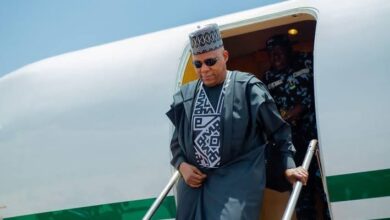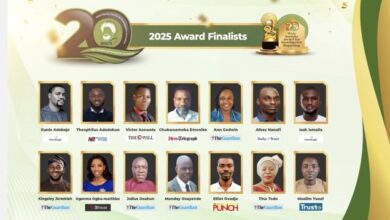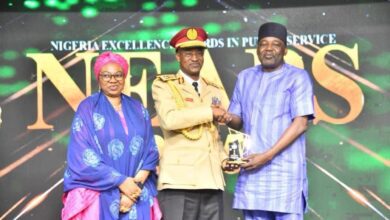Experts, WASH Practitioners Strategise To Advance Safely Managed Sanitation

Experts and Practitioners from the Water, Sanitation, and Hygiene (WASH) Sector have converged on Abuja to brainstorm ways to integrate Safely Managed Sanitation into Nigeria’s National Sanitation Programme.
This was disclosed by the Director of Press of the Ministry of Water Resources and Sanitation, Mrs. Funmi Imuetinyan in a statement on Tuesday, January 30, 2024.
Mrs. Imuetinyan said, the Federal Government in collaboration with Development Partners and key Stakeholders in the WASH Sector, at the Three-day National Workshop on Safely Managed Sanitation, underscored a collective commitment to addressing urgent needs and critical challenges within Nigeria’s Water, Sanitation, and Hygiene Sector with the focus of delivering safe Sanitation solutions throughout the Sanitation value chain in the Country.
She said, during the workshop’s Opening Session, the Honourable Minister of Water Resources and Sanitation, Prof. Joseph Terlumun Utsev emphasized the pivotal role of Sanitation in Public Health, Community well-being, and National prosperity.

The Minister reaffirmed that ending Open Defecation in Nigeria by 2025 and the actualisation of Sustainable Development Goal (SDG) target 6.2 for Sanitation, aimed at delivering equitable Sanitation and Hygiene services by 2030, serves as an indispensable cornerstone for fostering both social equity and robust economic growth and inclusivity.
Highlighting the economic impact of Safely Managed Sanitation, Professor Utsev noted that the Sanitation value chain will improve food security, end poverty, ensure job creation, reduce healthcare costs, and improve productivity.
He further urged swift progress and increased investment in the Water, Sanitation, and Hygiene Sector while emphasizing the need for collective efforts to meet the Global SDG targets within the next six years.
He expressed appreciation to all Stakeholders and Development Partners, including UNICEF, the World Bank, WaterAid, and WHO, for their unwavering commitment and continuous support to the Nigerian WASH sector.

He urged participants to articulate existing gaps in Safely Managed Sanitation in Nigeria, identify key priority actions, and bridge the gaps in the accomplishment of Safely Managed Sanitation.
UNICEF Chief of WASH, Dr. Jane Bevan, in her remarks, bemoaned the inadequate personal and Public Hygiene and highlighted the importance of Safely Managed Sanitation, urging all to ensure the implementation of effective strategies.
In her welcome address, Mrs. Elizabeth Ugoh, Director of Water Quality Control and Sanitation, Federal Ministry of Water Resources and Sanitation, noted that the Workshop serves as a crucial platform to collectively explore innovative strategies, share best practices, and deepen collaboration to advance the cause of safe and sustainable Sanitation for the populace.
She revealed that the Workshop will focus on Technological Innovations and policy frameworks for Community engagement and behavioral change.
She added that collective expertise and diverse perspectives would shape the future of Safely Managed Sanitation.
Goodwill messages were given by representatives of the World Bank, Water Aid, and others.

The National Coordinator of the Clean Nigeria Campaign, Mrs. Chizoma Opara, gave an overview of Safely Managed Sanitation from the containment stage of faeces to its transportation, up to the level of reuse and recycling.
She emphasized the gains of the entire Sanitation Value Chain and urged all to key into its advantages.
She also outlined the objectives and expected outcomes from the Workshop.
Present at the workshop were representatives from the Federal Ministry of Environment, four participating States (Plateau, Jigawa, Bauchi, and Katsina), as well as representatives from UNICEF, WHO, the World Bank, and WaterAid, among others.






